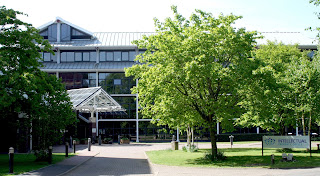IPO Consultation on SEPs and Innovation

Intellectual Property Office Crown Copyright 2007 Open Government Licence v3.0 Jane Lambert One of the talks that I gave at the Cambridge IP Law Winter School was "TMT: A SEP and FRAND Overview". I did not choose that title so I shall try to explain what I think it means. "TMT" stands for technology, media and telecoms. TMT is a sector where there has been a lot of litigation about "SEPs". SEPs are "standard-essential patents", that is to say, patents for inventions that a telecoms equipment manufacturer has to use if it is to implement a technical standard. Technical standards are set by standards-setting organizations ("SSOs"). An important SSO for mobile communications is the European Telecommunications Standards Institute ("ETSI") . "FRAND" is short for "fair", "reasonable" and "nondiscriminatory" and refers to the terms on which SEP owners are supposed to license the use





